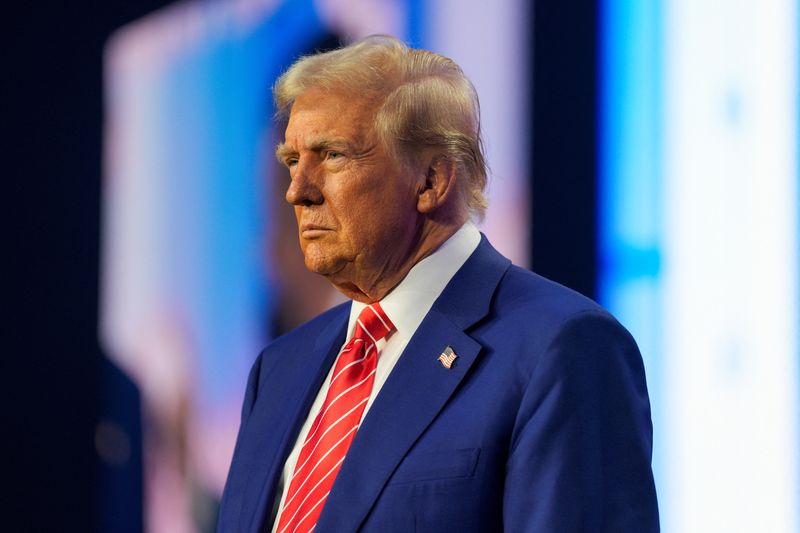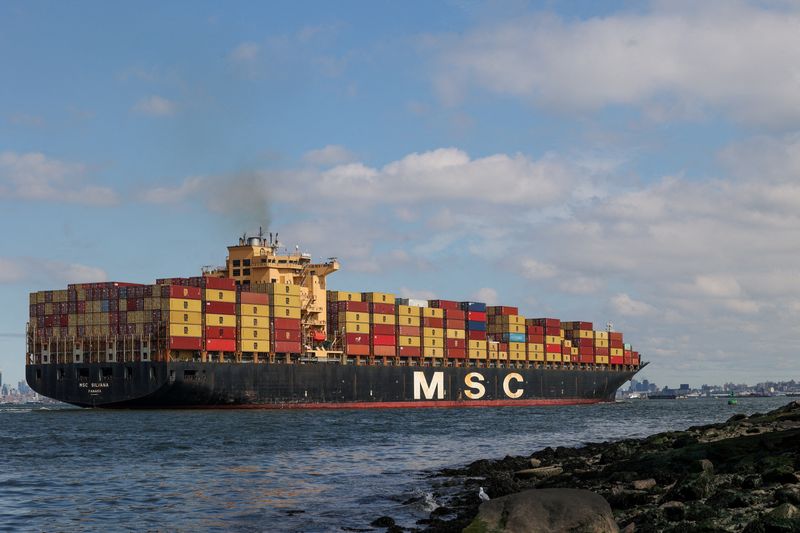By Andrea Shalal
WASHINGTON (Reuters) -U.S. President-elect Donald Trump on Monday denied a newspaper report that said his aides were exploring tariff plans that would only cover critical imports, deepening uncertainty among business leaders about future U.S. trade policies.
Trump responded on his Truth Social platform after the Washington Post (NYSE:POST) cited three sources familiar with the matter as saying that Trump aides were exploring a narrower approach to tariffs, focused on certain critical sectors.
"The story in the Washington Post, quoting so-called anonymous sources, which don't exist, incorrectly states that my tariff policy will be pared back. That is wrong. The Washington Post knows it's wrong. It's just another example of Fake News," he wrote in a post on Truth Social.
The Washington Post had reported that Trump aides were exploring tariff plans that would be applied to every country but only cover certain sectors deemed critical to national or economic security, in what would have represented a marked shift from promises Trump made during the 2024 presidential campaign.
U.S. and European stocks rallied sharply on Monday after the newspaper report, and remained up despite Trump's denial. The U.S. dollar pared declines against a basket of other currencies following the Trump statement.
Trump, a Republican who takes office on Jan. 20, had vowed to impose tariffs of 10% on global imports into the U.S. along with a 60% tariff on Chinese goods - duties that trade experts say would upend trade flows, raise costs and draw retaliation against U.S. exports. He later said he would impose a 25% tariff on Canadian and Mexican imports on his first day in office, which could lead to sharp increases in the cost of gasoline.
The aides said the plans are in flux and have not been finalized, according to the newspaper.
"It all seems uncertain and unsettled," said John Murphy, a senior vice president at the U.S. Chamber of Commerce, a powerful Washington-based lobbying group. "We've been hearing a quiet denial of the idea that there would be lots of exclusions from some of these tariffs plans."
While tariffs imposed during Trump's first term didn't send inflation soaring, they did result in a noticeable drop in foreign and domestic investment and business sentiment, he said. "The sooner we can have clarity and stability and avoid the hefty cost of these tariffs to the degree possible, the better."
The Washington Post report said it was not clear which sectors the tariffs would target, with preliminary discussions largely focused on several key sectors, including the defense industrial supply chain, through tariffs on steel, iron, aluminum and copper; critical medical supplies such as pharmaceutical materials; and energy production, including batteries, rare earth minerals and solar panels."
Reuters last month reported that a Trump transition team document recommended imposing tariffs on all electric battery materials globally in a bid to boost U.S. production and then negotiating individual exemptions with allies.

It called for charging tariffs on “EV supply chain” imports including batteries, critical minerals and charging components. The proposal viewed by Reuters said the administration should use Section 232 tariffs, which target national security threats, to limit imports of such products.
The Defense Department in recent years has highlighted U.S. strategic vulnerabilities because of China’s dominance of the mining and refining of critical minerals, including graphite and lithium needed for batteries, and rare-earth metals used in both EV motors and military aircraft.
